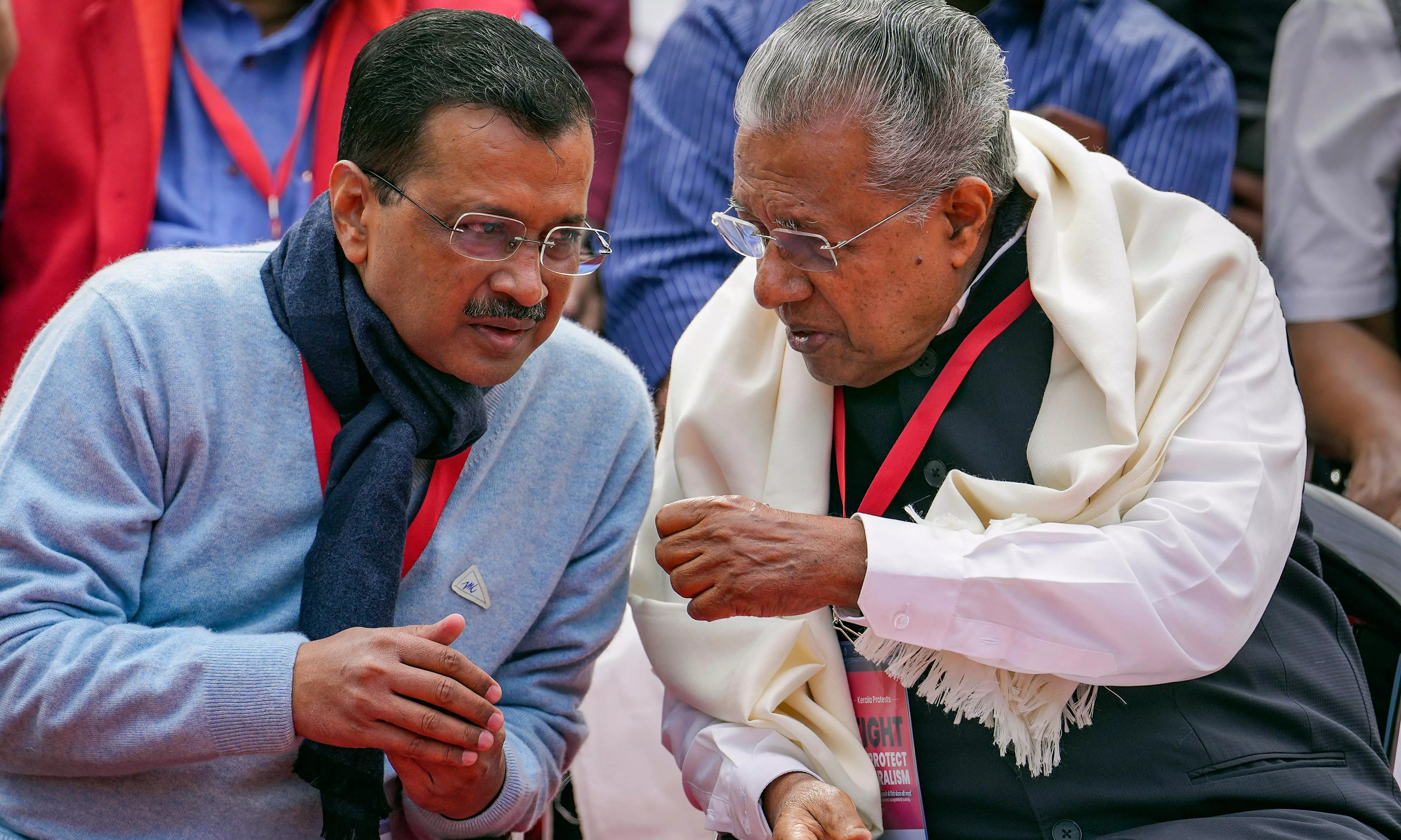
Kerala cooperative fraud: ED to list CPI(M) as an accused in PMLA case
ED claims CPI(M) used the proceeds of the money-laundering done by the accused in the Karuvannur Cooperative Bank fraud case to buy property in Porathussery

With the Enforcement Directorate (ED) officially attaching a 10-cent property in the name of MM Varghese, the Thrissur district secretary of CPI(M), Kerala’s ruling party is now officially an accused in a money-laundering case associated with the Karuvannur Cooperative Bank fraud.
The ED provisionally attached the property, along with an amount of Rs 60 lakh, alleging it was procured using the proceeds of the crime. The CPI(M) will be listed as an accused in the case records when the final complaint is filed in the special court.
ED accusations
The ED claims that the CPI(M) used the proceeds of the money-laundering carried out by the accused in the Karuvannur Cooperative Bank fraud case to buy property in Porathussery.
According to the agency, the accused, in collusion with bank officials, embezzled depositor funds by issuing fake loans. Multiple bogus loans were repeatedly sanctioned on the same property, and benami loans were granted to individuals who were not bank members, often against inflated property valuations. These fraudulent loans were then siphoned off and laundered by the accused.
The accused
Arrests have been made under the Prevention of Money Laundering Act, 2002, including that of Satheesh Kumar, a money lender; PP Kiran, a Thrissur-based collection agent; PR Aravindakshan, a CPI(M) councillor of Wadakkanchery municipality; and CK Jils, an accountant at the bank.
These individuals are accused of benefitting from the illegally sanctioned loans. Now the agency is trying to link these transactions to the CPI(M).
The ED had previously interrogated MM Varghese, former minister AC Moideen, and party leaders PK Biju and MK Kannan in connection with the case.
After AAP, the CPI(M)
This is not the first time the ED has named a political party as an accused in a case but it is a notable development in Indian jurisprudence.
In March 2024, the ED made history by naming the Aam Aadmi Party (AAP) and its national convener, Arvind Kejriwal, as accused in a chargesheet linked to the alleged Delhi liquor policy scam. This was the first instance where a political party has been officially accused in a money-laundering investigation, marking a significant shift towards holding entire political entities accountable for financial misconduct, which could also be interpreted as a potential instance of political vendetta by the ruling party.
Scam affects election
However, CPI(M) state secretary MV Govindan denounced the purported political motivations behind the Karuvannur bank scam, alleging that the ED was intentionally targeting the party. Govindan said the CPI(M) would confront the issue legally and politically, contending that the allegations were part of a strategy to undermine the party’s reputation.
The Karuvannur bank scam became a major election issue, particularly in Thrissur, where the BJP made significant inroads in the 2024 Lok Sabha elections. This led to Suresh Gopi securing a seat in the Lok Sabha, subsequently becoming a minister of state in the Narendra Modi government.
Simmering case
The scandal’s prominence in the political discourse highlighted the widespread concerns about financial mismanagement and corruption within cooperative banks, further influencing voter sentiment and electoral outcomes in the region.
The alleged fraud at the Thrissur-based Karuvannur Cooperative Bank, which began in 2010, had been simmering since 2021 when the media exposed fraudulent loans linked to the case. The money-laundering investigation originates from 16 FIRs filed by the Kerala Police (Crime Branch) in Thrissur.
After the FIR was registered in July 2021, the registrar’s audit revealed “diversions” of over Rs 100 crore, as submitted by the ED in the Kerala High Court in 2022.
CPI(M) secret accounts?
The ED subsequently submitted a report to the court alleging that the CPI(M) was maintaining “secret accounts” to utilize benami funds. The party retaliated during the election campaign by refuting all charges, disclosing their account details, and challenging the agency to substantiate its allegations.
In an affidavit filed with the Kerala High Court, the ED submitted that many cooperative societies in Kerala are engaged in granting illegal loans to the public, thereby violating the Banking Regulations Act. The ED argued that the scam was likely known to the Registrar of Cooperative Societies, as an audit copy would have been provided to the Registrar at the time of its completion. The ED alleged that a potential oversight or complicity from the Registrar’s office in the ongoing fraudulent activities, directly pointing finger towards the state government and the co-operative department.
Left under shadow
The ED affidavit also highlights that the key decision-makers within these cooperative societies are politically influential individuals and their associates, putting the ruling Left Democratic Front (LDF) in the dock, as a majority of the cooperatives are controlled by CPI(M)-led director-boards across the state.
According to the agency, this political influence raises significant concerns about the overall functioning and governance of cooperative societies in Kerala. The affidavit suggests that the political clout of these decision-makers could have facilitated the illegal activities and obstructed regulatory scrutiny, thereby allowing the scam to persist.
Though the ED’s charges underscore the need for stringent regulatory oversight and accountability within cooperative societies to prevent the misuse of depositor funds and ensure compliance with banking regulations, the CPI(M) leaders see it as a move by the Union government to take over the co-operative sector of the state by creating chaos, especially after Amit Shah took charge of the cooperative ministry.
